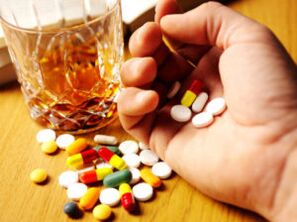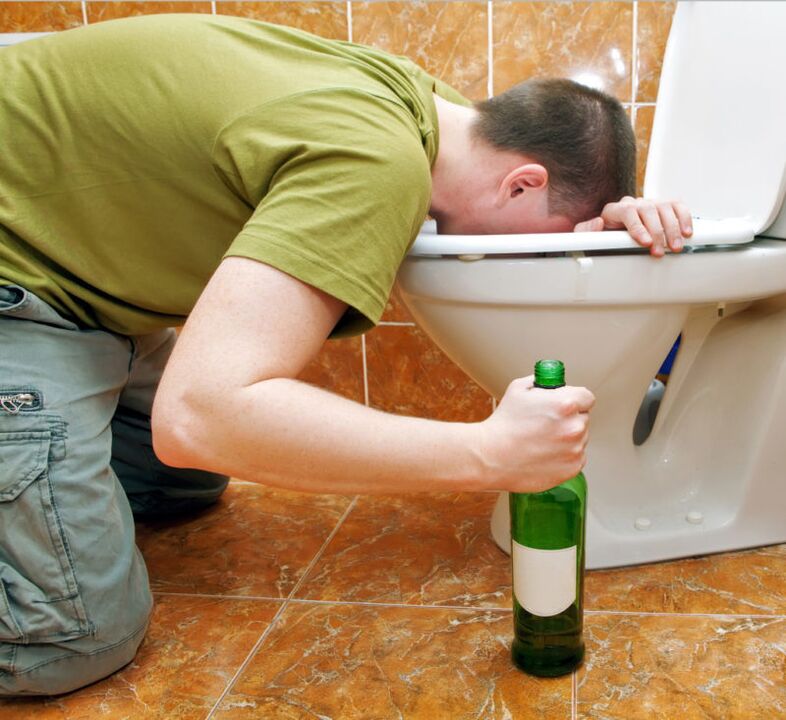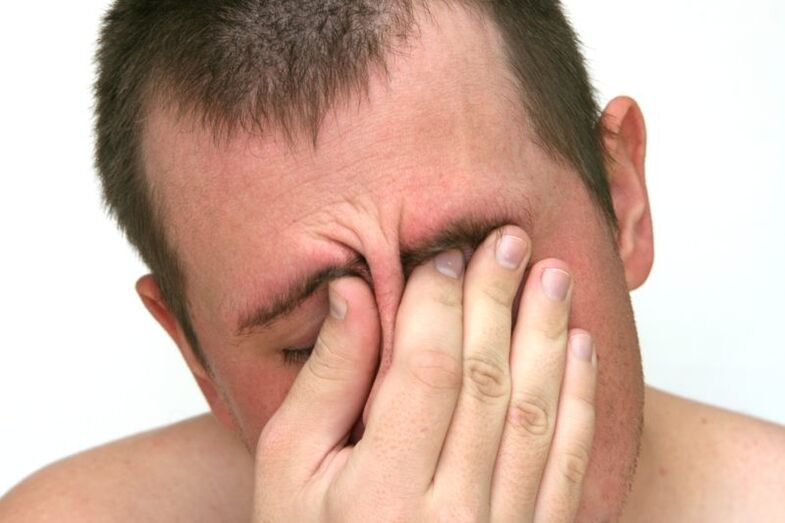
The situation when taking medication coincides with an unusual holiday. Therefore, the question arises, is it possible to take antibiotics and alcohol, whose compatibility is questionable?
There are many myths that a combination of alcoholic beverages and drugs does not harm the body.
Many people know that alcohol should not be consumed during antibiotics. The main question arises: why?
This is what will be discussed in this article. You will also learn about the effects of drinking alcohol after antibiotics.
Next, consider why you should not drink alcohol with antibiotics.
Possible consequences
Any sane person understands that health is the most important thing, so he does not want to take risks and have serious consequences. This relatively popular topic should be analyzed in detail, the opinion of the doctor should be taken into account to know for sure whether it is possible to drink alcohol while taking antibiotics. Experts say that drug intake indicates a complete rejection of products containing alcohol (this is also true for all types of cocktails and low -alcohol beers).
Long -term studies show that in certain cases, alcohol intake does not interfere with antibiotic treatment at all, but can lead to consequences such as:
- headaches in the temple area, as well as migraines;
- poisoning;
- negative effects on the kidneys and liver;
- mental disorder;
- dyspeptic syndrome.
Alcohol poisoning
Drugs with antibacterial properties, acting as a causative agent of the disease, destroy it. In the same way, antibiotics affect the whole body as a whole, but their concentration and dosage are not enough to harm a person. During therapy, the organs of the urinary system and liver are overgrown, due to fighting the toxic effects of antibiotics.

If you add alcohol intake to this, the liver will receive a large additional burden, as a result, intoxication and alcohol poisoning.
The worst -case scenario is when the active ingredient of the drug enters a chemical reaction with fusel oil and ethanol. In these cases, the consequences can be dangerous and unpredictable, sometimes even fatal.
It should be noted that some medications taken are aimed at eliminating alcohol addiction. They include components that react negatively to the appearance of alcohol in the blood. If you drink alcoholic beverages and take such drugs, then the destructive process in the body cannot be stopped. Because the active ingredients of the drugs will begin to suppress the enzymes responsible for processing and removing ethanol from the body. The process of acetaldehyde cleansing stops - this is the main reason for the sudden deterioration of well -being. Acetaldehyde is very toxic, and because the body does not have the resources to clean it, the poisoning continues to develop, which eventually leads to adverse consequences.
If you ignore the doctor's warnings and contraindications stated in the instructions of the pill, there is a high probability of serious poisoning, which is accompanied by problems such as:
- tachycardia or arrhythmias;
- confusion, lack of coordination;
- disorders of the central nervous system;
- weakness and chills;
- vomiting;
- indifference;
- drowsiness, lethargy;
- stomach and intestinal dysfunction;
- problems with blood vessels;
- acute heart failure.

When can you drink alcohol after antibiotics? Keep in mind that the human body has individual reactions and characteristics, therefore, the cause of this consequence can be many drugs taken simultaneously with alcohol. The first symptoms of poisoning may appear 10-15 minutes after drinking alcohol. And to restore health and get rid of the consequences, will take at least 10 days. Hence the conclusion - you can indulge in wine, cognac or beer after antibiotics after antibiotic treatment is completed, and more than 3 days have passed since the last dose of the drug. And allowed to drink alcohol 2 days before the start of the drug.
Antibiotics and beer
The same goes for antibiotics and beer. Many people like its bitter taste, so they stop considering beer as an alcoholic beverage. However, research results show that the intake of antibiotics in combination with alcohol is inappropriate and has unpredictable consequences. The effect of the active ingredient of the drug weakens and, thus, is slowly removed from the body. This phenomenon is explained by the fact that ethanol interferes with the liver, which is responsible for the processing of drugs that enter the body. There are antibiotics that are strictly forbidden to be taken with beer.
After how many days can you drink beer without alcohol?
The widespread belief that non -alcoholic beer is harmless during treatment is a misconception, because beer marketed as non -alcoholic contains a small percentage of alcohol. This suggests that the possible consequences of combining antibiotics with this drink are the same as in traditional beer with standard strength. The only caveat is that after antibiotics is allowed to drink beer without alcohol not after 3 days, but after 2. This is explained by the fact that a small amount of alcohol is excreted faster from the body, and the liver functions without taking a heavy load.
So, taking antibiotics along with alcohol is far from the best solution. Make sense of it wisely and ask yourself why and what kind of treatment are you starting? The answer is clear, and priorities should be set: you are treated to improve your health, not to make matters worse by drinking.
























